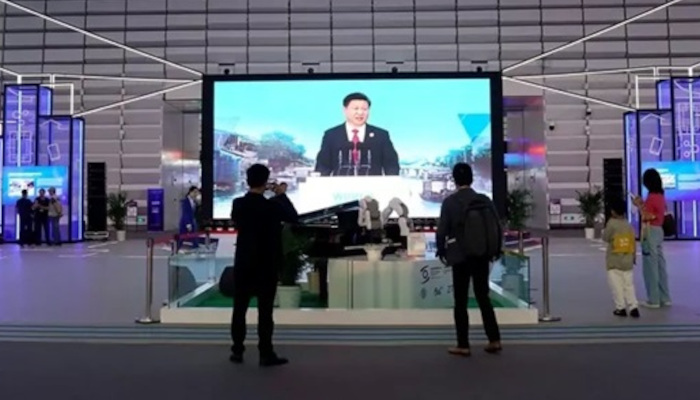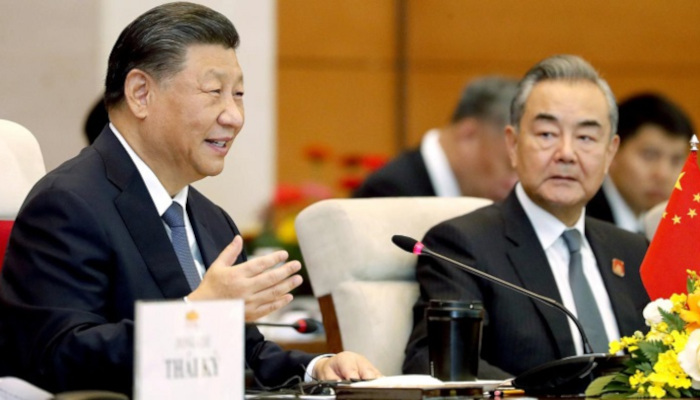
A lull in political initiatives about wars could draw China closer to Russia just as the two countries’ agendas are drawing apart
As Moscow was the center of President Xi Jinping’s talks in Paris, Belgrade, and Budapest, there is possibly a growing systemic fissure between Russia and China concerning the war in Ukraine – specifically, their respective policies regarding foreign investment.
In recent days, Moscow has seized the Russian assets of two European companies, German Bosch and Italian Ariston. This also casts a shadow of doubt on the fate of foreign companies in China.
Russia is openly at war and seized foreign assets in retaliation for a Western freeze of Russian properties in the West and as a warning against the threat of eventual appropriation of those assets. China is not at war, yet it supports the Russian industrial effort.
The US and EU see a growing Chinese involvement in Moscow’s fight. There is an increasing belief that Russia’s war effort would have long floundered without Chinese industrial support. Consequently, Chinese assets could then be exposed to sanctions, and in retaliation, so could Western investment in China.
It is all hypothetical so far, but recent unforeseen developments in Ukraine and Gaza make it impossible to rule these occurrences out.
Still, so far, China has been keen on drawing foreign investment as it needs access to Western markets to generate its trade surplus. Therefore, Beijing needs to avoid the loop of threats of seizures, or else its economy could suffer even without an open conflict with the West, as is the case with Russia.
For this, China would need to distance itself from Russia. But here, the story becomes complicated.
Togliattigrad
In the 1970s, the Western system could tolerate and even encourage Togliattigrad (Fiat’s car investment in Russia), but now it cannot. We can find the reason in the arguments of some Italian die-hard communists back then. They opposed Togliattigrad because “it would spread capitalist seeds in the USSR and help capitalist countries.”
These were persuasive arguments to convince the West that Fiat was loyally serving the West by investing in Togliattigrad. Additionally, the PCI (the pro-soviet opposition Italian Communist Party) would be pushed to collaborate more with the Christian Democrats (the pro-US Italian ruling party).
In those same years, during the oil crisis with OPEC, the USSR cut a deal with the USA to supply oil. The USSR saw it as a way to make some cash and further divide the unreliable Arab princes (Saudi, Kuwait, Qatar…) from their old Anglo-American backers.
Now, the situation is entirely different. There’s no dispute between capitalism and socialism, but rather between (stupidly put) market-driven capitalism (comparatively liberal) and government-driven capitalism (comparatively authoritarian).
Thus, the rich from market-driven capitalism doing business with government-driven capitalism have a completely different impact at home and in their host countries.
Then, if something similar were to happen with China (i.e., the US or any other foreign country were to freeze Chinese assets abroad), would Western investors in China feel confident that nothing similar would happen to them in China? Western exposure in China creates vested interests in the West, and these people will fight against the US freezing Chinese assets abroad. However, it also presents a conundrum: the Western government could be dismissive of Westerners who invested in China, pleading for Chinese interests.
In market-driven economies, large businesses are important but have also been historically regulated since the end of the 19th century to prevent their hijacking the republican government, undermining the republic, and killing the free market (which requires a fairly even playing field for all enterprises, old and new, big and small).
Therefore, the Russian example casts a shadow on Western companies invested in China. They can be blackmailed, and thus, whatever they say can be dismissed as being the mouthpiece of authoritarian governments. This could be tolerated if the Western system hoped to improve ties with China, but does it? The main Western thrust seems to close loopholes and “dangerous” business opportunities between China and the rest of the world.
If the Chinese government were to guarantee foreign investment in China under any circumstance, this could create a skewed playing field in China where foreigners would be preferred over locals. It was like this in the past, but because foreigners brought in market openings, it could be a more difficult argument now.
Indeed, the Chinese are waiting for the US presidential elections. In the meantime, they listen to Russian sirens telling them: support me, wait for (presidential candidate Donald) Trump, don’t trust the wily and evil Americans, manipulate the USA through their greedy and immoral wealthy businessmen…
This is what is most dangerous—this semi-lull. In this “lull,” things could worsen, perhaps beyond repair, for everybody.










Can China Dodge a “Russianizing” Lull? - SettimanaNews